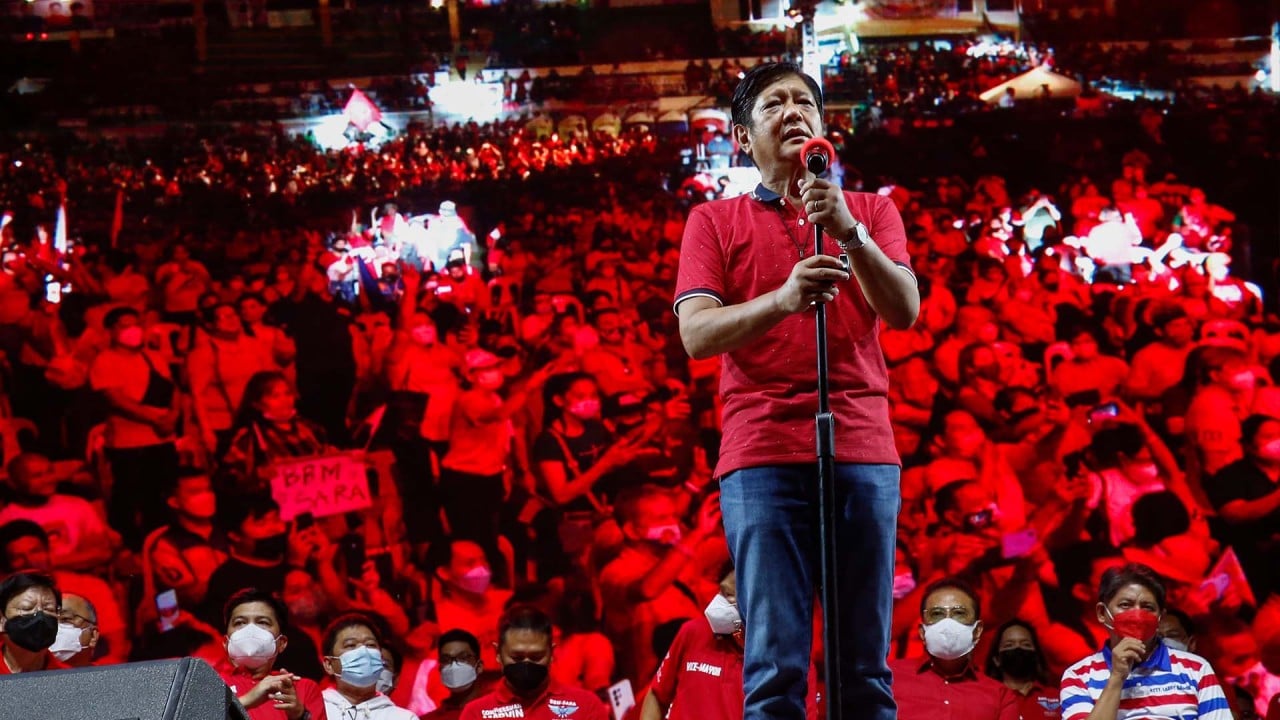Trolls and polls: fake news surrounds Philippines’ Robredo-Marcos showdown
- Bongbong Marcos’ campaign relies on a long-built disinformation network that attacks his rivals and perpetuates falsehoods about them, analysts say
- While Leni Robredo’s ratings are inching up and those of frontrunner Marcos have lost some steam, his well-funded movement and online reach still makes him the person to beat

With some two weeks left until the Philippine presidential election on May 9, the field has narrowed to two contenders: Ferdinand “Bongbong” Marcos Jnr and vice-president Leni Robredo, each employing very different campaign strategies.
It’s a rematch for the two: Robredo, 57, narrowly beat Marcos Jnr, 64, to win the vice-presidency in 2016. Marcos demanded a partial recount, which later showed that Robredo had ended up with more votes. This time, both are vying for the top job.
Opinion polls indicate Marcos Jnr, the son of dictator Ferdinand Marcos who ran a repressive martial law regime from 1972 and plundered the country for 14 years, is far ahead. A survey conducted in March by Pulse Asia showed some 56 per cent of respondents preferred Marcos Jnr as president, while 24 per cent backed Robredo. But Robredo has been inching forward – she gained 9 percentage points while Marcos lost four.
Analysts say Marcos Jnr’s popularity is derived from a successful social media campaign, aided by disinformation “influencers”, pushing the message that the “golden age” of the Marcos dictatorship – which supporters argue was a period of economic prosperity – could return with his scion at the helm.
According to a Washington Post report: “Key to the messaging is that the family has been unfairly maligned, that President Ferdinand Marcos was not a corrupt kleptocrat but one that brought his country glory, wealth and infrastructure.”
At the same time, legions of Marcos trolls have attacked his opponents and critics, usually using fabricated information.
‘Two-track’ strategy

